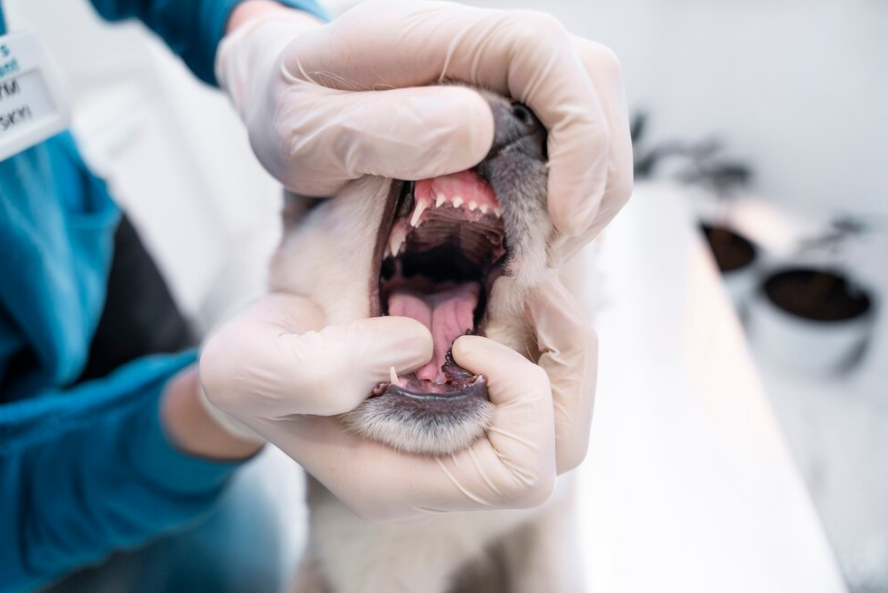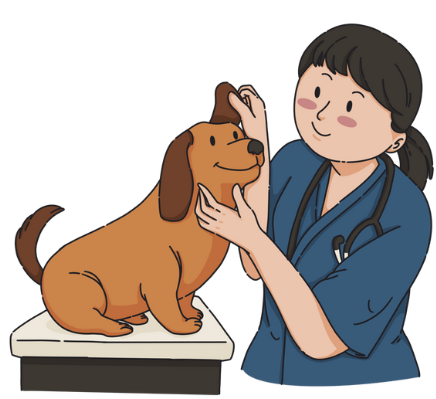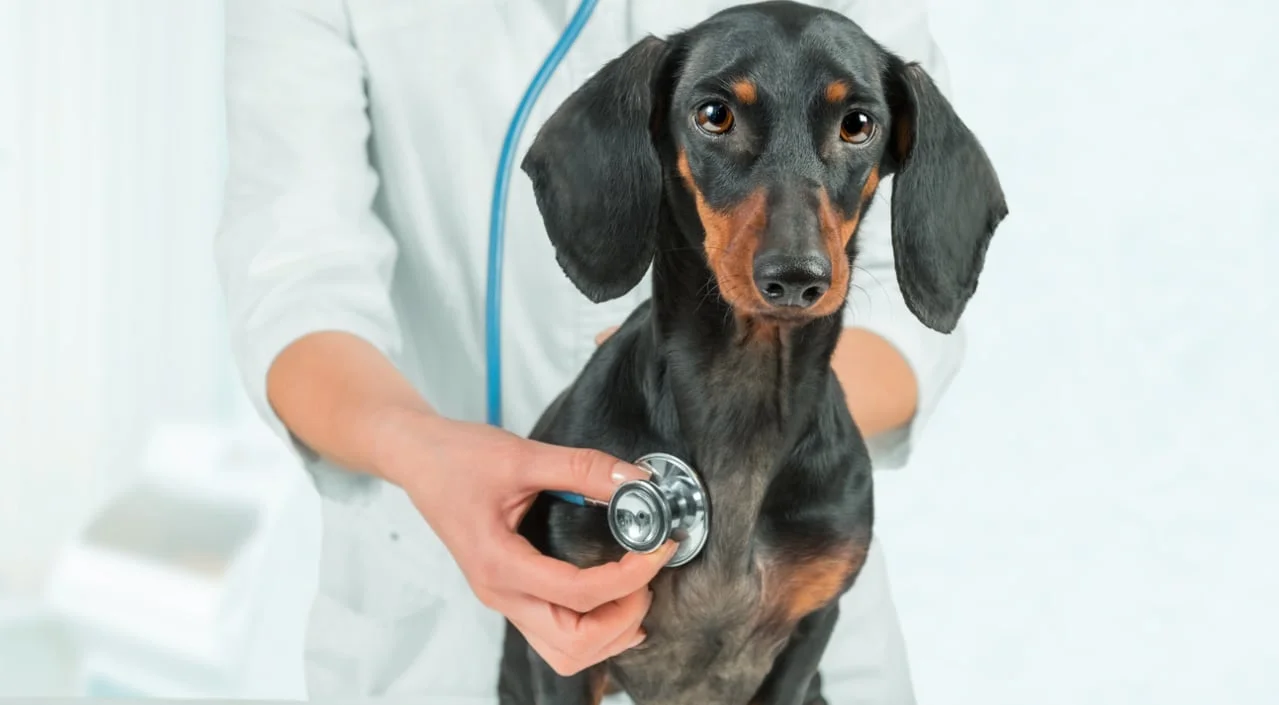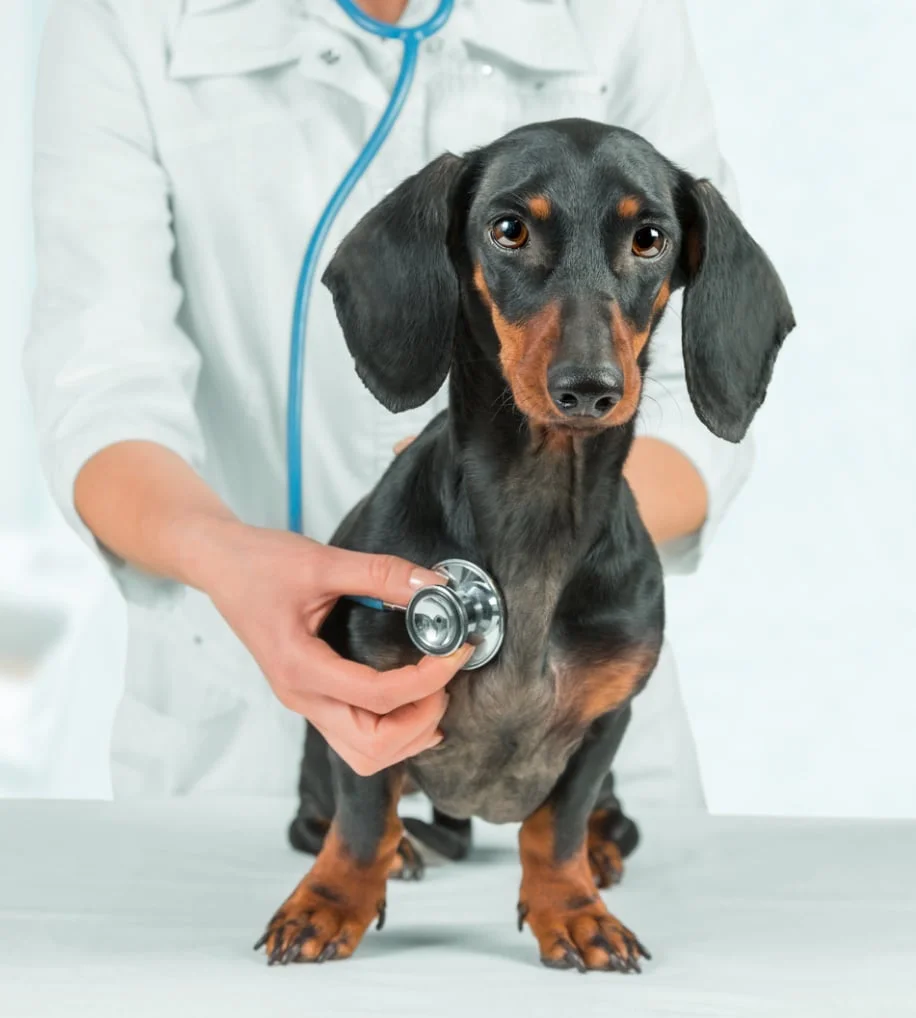As a pet owner, you probably think about keeping your furry friend healthy and happy. You make sure they get enough exercise, eat right, and see the vet for their regular checkups. But there’s one important aspect of their health that often gets overlooked: their teeth. Just like us, animals need proper dental care to prevent serious issues. If you ignore your pet’s dental health, they could face pain, discomfort, and other health problems.
In this blog, we’ll talk about the importance of animal dental cleaning and the 10 signs your pet might need a professional dental cleaning. Whether you have a dog, a cat, or any other pet, keeping their teeth clean is an essential part of their overall well-being.
So, let’s move into the reasons why you should care about your pet’s teeth and how you can keep them healthy!
- Bad Breath
Bad breath is one of the most common signs that your pet might need a dental cleaning. If your pet’s breath has become foul or stinky, it’s a red flag. While occasional bad breath is normal for pets, persistent, smelly breath can indicate the buildup of plaque or tartar. This is where animal dental cleaning comes in. A professional cleaning will help remove this buildup and leave your pet’s mouth feeling fresh again.
If you’ve noticed that your dog or cat’s breath smells like rotten food or even fishy, it’s time to think about a canine dental cleaning. Bad breath can also be a sign of gum disease or even tooth decay. So, if this is something you’ve noticed, don’t ignore it.
- Yellow or Brown Teeth
Healthy teeth are white and shiny, but if your pet’s teeth have a yellow or brownish tint, it might be time to schedule an animal dental cleaning. Plaque and tartar buildup can cause discoloration and lead to more severe dental problems like gingivitis and periodontal disease. If you see this happening, don’t wait. A professional cleaning can help restore the natural color of their teeth and prevent further issues.
Some people might think yellow teeth are just a cosmetic problem, but they’re actually a sign that bacteria are building up and affecting your pet’s gums. Getting canine dental cleaning in Spring Valley or wherever you live can save your pet from more serious health concerns.
- Difficulty Eating or Chewing
If you notice your pet having trouble eating or chewing their food, it’s a definite sign that they may need a dental cleaning. Sometimes, this is because of painful gum disease or tooth decay, which makes chewing difficult and uncomfortable. If your pet is avoiding their food or chewing oddly, you should have their teeth checked by a vet.
Animals with dental pain might also start dropping their food or refuse to eat altogether. If this is the case, animal dental cleaning can help. A professional cleaning will remove the bacteria causing the discomfort and make eating easier and more enjoyable for your pet.
- Drooling More Than Usual
Excessive drooling is another sign that something may be wrong with your pet’s teeth. While dogs drool more than cats naturally, if your dog or cat is drooling far more than usual, it could be due to an oral infection or gum disease. Sometimes, the pain in their mouth from decaying teeth or infected gums causes them to salivate more than normal.
If this is happening, it’s important to schedule an appointment for animal dental cleaning as soon as possible. A proper cleaning can address the root of the problem and help your pet feel better.
- Pawing at Their Mouth or Face
Has your pet been pawing at their mouth or rubbing their face more than usual? This could be a sign that they are in pain due to dental issues. Just like humans, pets experience discomfort when their teeth or gums are infected. They may try to ease the pain by pawing at their mouth, shaking their head, or rubbing their face against furniture.
If you notice these behaviors, it’s time to take action and get your pet a professional canine dental cleaning. Your pet can’t tell you when their mouth hurts, so paying attention to these signs is key in preventing further complications.
- Swollen or Bleeding Gums
Healthy gums should be pink and firm. If you notice your pet’s gums are swollen, red, or even bleeding, this is a clear sign that they need a dental cleaning. Swollen or bleeding gums are often signs of gingivitis or periodontal disease, which can lead to tooth loss if not treated.
A regular canine dental care routine can help prevent these conditions, but sometimes your pet may need a professional cleaning to address more serious issues. If your pet’s gums are showing signs of infection or inflammation, don’t hesitate to contact your vet.
- Loose or Missing Teeth
Loose or missing teeth are another serious sign that your pet might need a dental cleaning. As plaque and tartar build up over time, they can loosen the teeth and cause them to fall out. This can lead to discomfort when eating and might even cause infection in the surrounding areas of the mouth.
Loose teeth or missing teeth should be addressed as soon as possible. In many cases, a professional cleaning can help prevent further tooth loss and restore your pet’s dental health. If your pet has already lost a tooth, it’s important to ensure that the remaining teeth are properly cared for through regular cleaning.
- Changes in Behavior
If your normally friendly and energetic pet suddenly becomes withdrawn, irritable, or doesn’t want to play, it might be due to dental pain. Animals are good at hiding discomfort, so changes in behavior are often one of the first signs of oral problems.
Pets with untreated dental issues might feel constant pain in their mouths, and this could affect their mood and activity levels. A professional canine dental cleaning can relieve this discomfort and help bring back their usual happy personality. If you notice a behavioral change in your pet, it could very well be linked to their teeth.
- Weight Loss
You may not directly associate weight loss with dental health, but it can actually be a sign that your pet is in pain from oral issues. If they are having difficulty eating due to sore gums, painful teeth, or an infection, they may not want to eat as much, which can lead to weight loss.
If your pet has lost weight recently and you think their eating habits have changed, it could be a result of dental problems. A thorough animal dental cleaning can improve your pet’s ability to eat and help them regain their weight.
- Unusual Behavior While Grooming
Sometimes, your pet might show unusual behavior while grooming. If your dog or cat is constantly licking their lips, chewing on their paws, or avoiding grooming altogether, it could be a sign that their mouth hurts. If you notice these behaviors, it’s important to schedule an appointment for a professional cleaning.
Animals that experience discomfort when grooming often have dental problems that need to be addressed. Taking care of their teeth can help them return to their normal grooming habits.
Why Animal Dental Cleaning is So Important?
Just like in humans, poor dental hygiene can lead to serious health issues for your pet. If left untreated, dental diseases in animals can affect not only their teeth and gums but also their overall health. Infections in the mouth can spread to other organs, including the heart, kidneys, and liver. This is why animal dental cleaning is not something to ignore.
When you make sure your pet gets regular dental checkups, you are preventing potential pain, infection, and even life-threatening diseases. Whether it’s through professional cleanings or regular at-home care, keeping your pet’s teeth clean should be a priority.
Book Your Pet’s Appointment Now!
Caring for your pet’s teeth is just as important as caring for their other health needs. Ignoring your pet’s dental health can lead to pain, discomfort, and serious health problems down the road. By paying attention to the signs that your pet may need a dental cleaning—like bad breath, yellow teeth, or difficulty eating—you can help ensure that their teeth stay healthy for years to come.
FAQs (Frequently Asked Questions)
- How often should I get my pet’s teeth cleaned?
The frequency of animal dental cleaning depends on your pet’s age, breed, and overall dental health. Generally, dogs should have a professional cleaning once a year. However, some pets may need cleanings more often. It’s best to consult your vet for a personalized recommendation based on your pet’s needs. - Can I clean my pet’s teeth at home?
Yes, you can clean your pet’s teeth at home! Regular brushing with a pet-safe toothbrush and toothpaste can help prevent plaque and tartar buildup. However, even with at-home care, your pet may still need professional cleanings to ensure their teeth stay healthy and free from serious dental issues. - What are the risks of ignoring my pet’s dental health?
Ignoring your pet’s dental health can lead to gum disease, tooth loss, infections, and even more severe health issues like heart disease or kidney problems. Regular dental cleanings help prevent these risks and keep your pet healthy and happy. - How do I know if my pet’s teeth need cleaning?
Look for signs such as bad breath, yellow or brown teeth, difficulty eating, excessive drooling, and swollen or bleeding gums. If you notice any of these symptoms, it’s time to take your pet to the vet for an animal dental cleaning. - Can dental cleanings be painful for my pet?
Dental cleanings are usually done under anesthesia, so your pet won’t feel any pain during the procedure. After the cleaning, there might be some minor discomfort, but it typically goes away quickly. Your vet will provide instructions for aftercare to help with any recovery. - Is canine dental care the same for all dog breeds?
While all dogs need dental care, some breeds are more prone to dental problems. Smaller dogs, for example, may experience dental issues like plaque buildup more often than larger dogs. It’s important to tailor your dog’s dental routine to their specific needs, and a vet can provide guidance on the best approach.
 Get $20 Off
Get $20 Off








